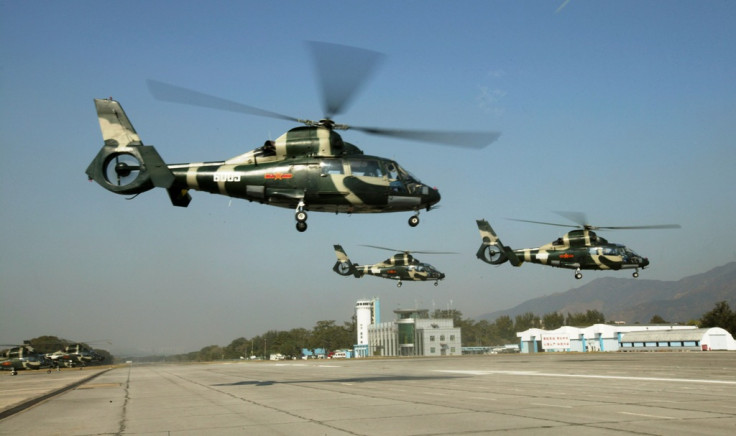China's military budget to rise 10% this year

China's defence budget will rise some 10% this year over 2014, a top government official has said, with the world's second-largest economy expected to increase investments in high-tech weaponry like stealth jets and military satellites.
Parliament spokeswoman Fu Ying, who gave the rough figure, said a formal announcement will be made on 5 March, when the annual session of the largely rubber-stamp National People's Congress opens, Reuters reported.
While Beijing keeps information about its military spending under wraps, experts have said additional funding will probably find its way into strengthening the navy with anti-submarine ships and building aircraft carriers beyond the only vessel in operation.
Fu said: "Compared with great powers, the road of China's defence modernisation is more difficult. We have to rely on ourselves for most of our military equipment and research and development
"In addition, we must strengthen the protection of our officers and soldiers. But fundamentally speaking, China's defence policy is defensive in nature. This is clearly defined in the constitution. We will not easily change this direction and principle..."
Expert's take
John Blaxland, Senior Fellow at the Strategic and Defence Studies Centre at the Australian National University in Canberra, told Reuters that Beijing could inject money into cyber capabilities and satellites.
Blaxland added: "Carriers have definitely got to be on the list.
"But also we've seen a massive surge in the number of submarines...The intimidatory effect of a submarine is hard to be beat."
Last year, China's defence spending rose 12.2% to $130bn, second only to the US.
But several experts believe the Asian super-power's actual defence outlay is much larger.
The US military and diplomatic "rebalancing" towards Asia and President Xi Jinping's crackdown on corruption in the People's Liberation Army, which has triggered some uneasiness in the ranks, are among the factors that have kept military spending high, experts have said.
Beijing has also said that it faces a threat from Islamist militants in the western Xinjiang region, and is drafting a new anti-terror law that puts in place a legal framework for sending troops overseas for counter-terrorism operations.
© Copyright IBTimes 2024. All rights reserved.









